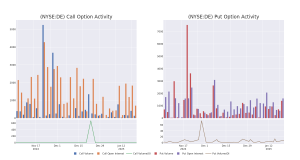ExxonMobil (NYSE: XOM) is the oil industry’s leader by almost every important metric, including profitability. The oil giant produced a peer-leading $8.6 billion in profits during the third quarter and a monster $17.6 billion of cash flow from operations, which also led international oil companies.
However, the fourth quarter proved more challenging for the oil giant as it issued a profit warning for the period. Here’s a look at whether that’s a concern or investors should buy the oil stock on its profit dip.
ExxonMobil recently gave investors a preliminary glimpse at its upcoming fourth-quarter earnings report, which it plans to release at the end of the month. The oil giant expects to report $1.76 per share of earnings in the period, well below analysts’ expectations. It’s also below the $2.48 per share it posted in the year-ago period and the $1.92 per share it earned during the third quarter.
The oil giant battled several headwinds during the period. The biggest came in refining. Lower margins reduced earnings by between $300 million and $700 million in the period. Timing also impacted its refining business, cutting an additional $500 million to $900 million from the bottom line. Gasoline demand was weaker than expected, while new refineries in Asia and Africa boosted supply.
Another issue that weighed on Exxon’s profits in the period was impairments. The company disclosed that it would take about $600 million in charges during the period. It also expects lower margins in its chemicals business to reduce earnings by roughly $400 million.
These headwinds offset the strength of the company’s upstream oil and gas production business. Exxon expects earnings from that segment to increase by around $400 million despite a 6% decline in oil prices during the period. Exxon benefited from a roughly 30% rebound in the price of natural gas in the U.S.
Market conditions had a notable impact on Exxon’s earnings during the fourth quarter. However, while its earnings declined during the period, it’s still in a class of its own. Further, the company expects to improve its already industry-leading profitability in the future.
The company recently revealed its 2030 plan. It aims to deliver an incremental $20 billion in earnings and $30 billion in free cash flow by 2030. Several factors will fuel that ambitious plan, including:
-
Pioneer Natural Resources: Exxon expects the annual synergies from its recently closed acquisition of Pioneer to be 50% more than initially expected, or about $3 billion.
-
New business: The oil company expects to grow the earnings from new businesses (e.g., lithium, carbon capture and storage, and others) to $3 billion.
-
Structural cost savings: Exxon is adding $7 billion to its structural cost savings target.
-
High-return capital investments: The company plans to deploy $140 billion over the next several years into major capital projects and developing the Permian Basin. These investments should generate returns above 30% by growing its high-margin production from advantaged assets and high-value products.

